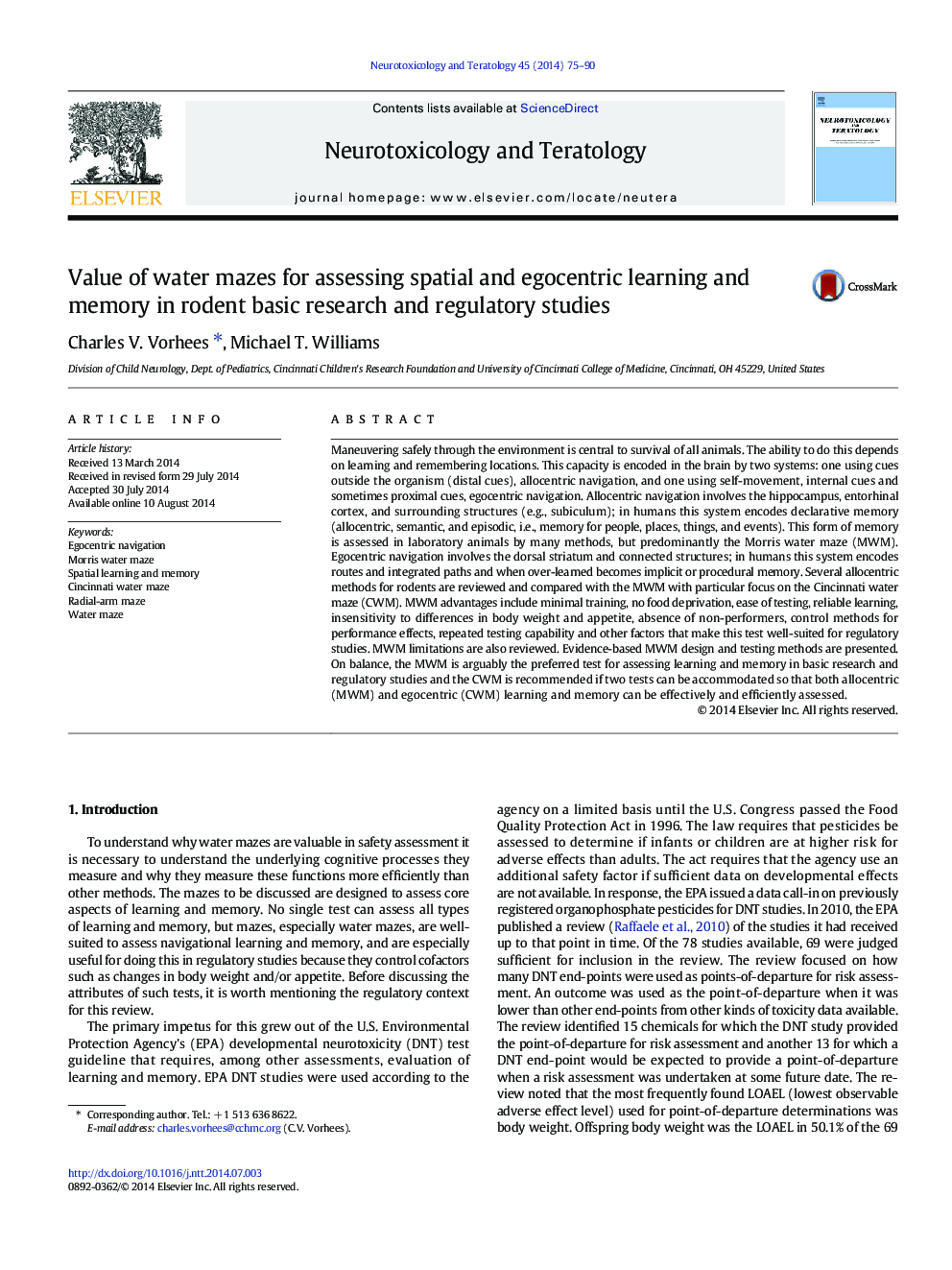| Article ID | Journal | Published Year | Pages | File Type |
|---|---|---|---|---|
| 2590928 | Neurotoxicology and Teratology | 2014 | 16 Pages |
•Water mazes are reviewed including their advantages and disadvantages.•Water mazes for allocentric vs egocentric learning and memory are distinguished.•The Cincinnati water maze is recommended for egocentric navigation assessment.•The Morris water maze is recommended for allocentric/spatial navigation assessment.•Detailed recommendations for water maze procedures are provided.
Maneuvering safely through the environment is central to survival of all animals. The ability to do this depends on learning and remembering locations. This capacity is encoded in the brain by two systems: one using cues outside the organism (distal cues), allocentric navigation, and one using self-movement, internal cues and sometimes proximal cues, egocentric navigation. Allocentric navigation involves the hippocampus, entorhinal cortex, and surrounding structures (e.g., subiculum); in humans this system encodes declarative memory (allocentric, semantic, and episodic, i.e., memory for people, places, things, and events). This form of memory is assessed in laboratory animals by many methods, but predominantly the Morris water maze (MWM). Egocentric navigation involves the dorsal striatum and connected structures; in humans this system encodes routes and integrated paths and when over-learned becomes implicit or procedural memory. Several allocentric methods for rodents are reviewed and compared with the MWM with particular focus on the Cincinnati water maze (CWM). MWM advantages include minimal training, no food deprivation, ease of testing, reliable learning, insensitivity to differences in body weight and appetite, absence of non-performers, control methods for performance effects, repeated testing capability and other factors that make this test well-suited for regulatory studies. MWM limitations are also reviewed. Evidence-based MWM design and testing methods are presented. On balance, the MWM is arguably the preferred test for assessing learning and memory in basic research and regulatory studies and the CWM is recommended if two tests can be accommodated so that both allocentric (MWM) and egocentric (CWM) learning and memory can be effectively and efficiently assessed.
